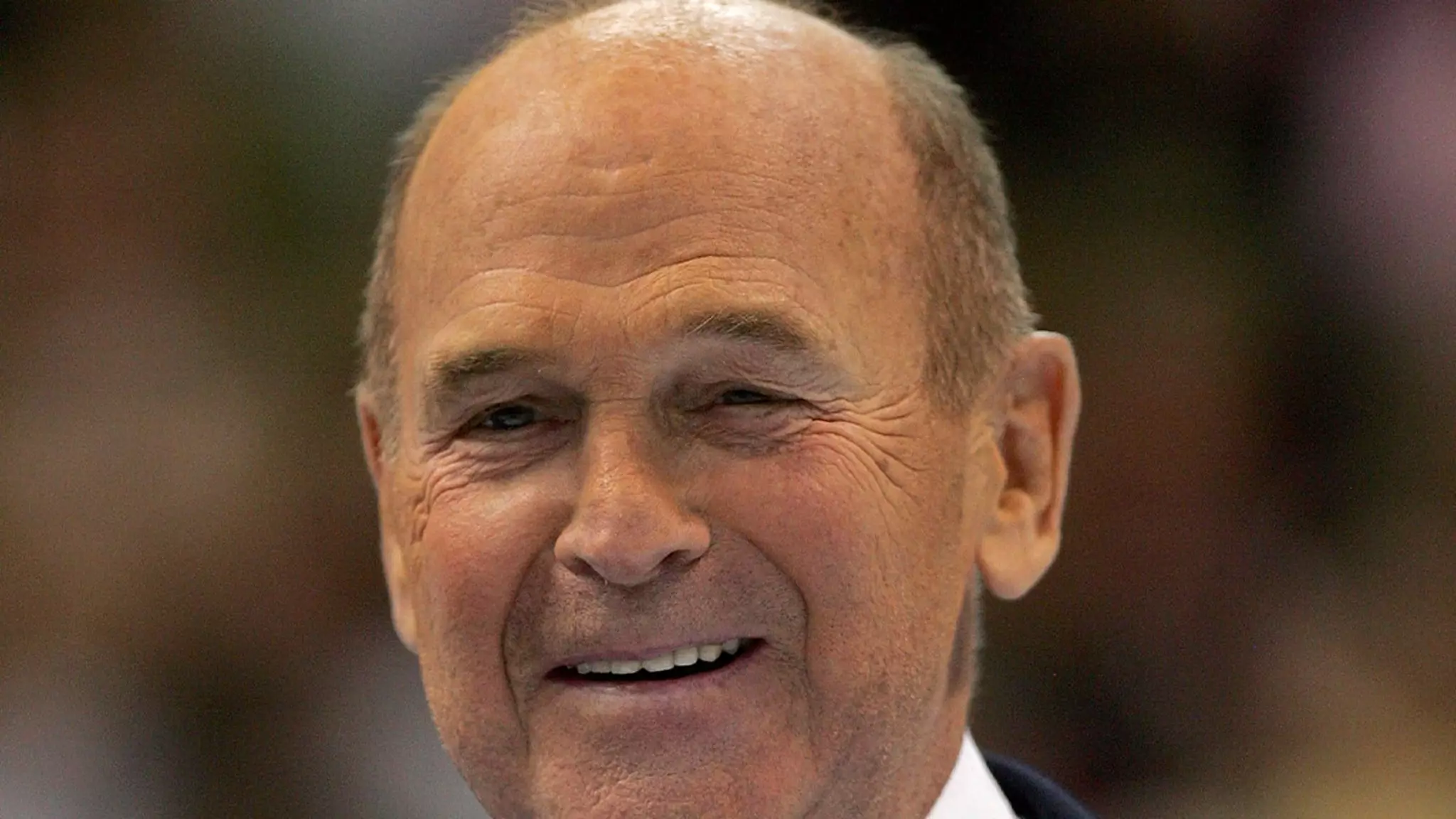The figure skating world has lost a monumental figure with the passing of Dick Button, the first Olympic gold medalist in the United States’ storied history of this winter sport. His death on a somber Thursday in North Salem, New York, marked not just the end of an era, but it also compounded the grief of a sport already mourning the tragic loss of young talents in a recent aviation disaster. Button’s contributions, however, resonate far beyond the ice, affording him a unique legacy as an athlete, a broadcaster, and an ambassador of figure skating.
Button was not merely a participant in figure skating; he was a transformative force. His competitive years during the 1940s and 1950s heralded a new chapter for American athletes in a field traditionally dominated by European contenders. Winning five consecutive world titles starting in 1948, Button captured the public’s imagination and uplifted the profile of American figure skating on the global stage. This achievement was punctuated by his Olympic debut, where at just 18 years old, he secured gold, a record that still stands: the youngest male skater to earn an Olympic title.
Notably, Button didn’t merely skate; he revolutionized the sport. At the 1952 Oslo Winter Olympics, he dazzled audiences by becoming the first male figure skater to successfully land a triple jump during a competition. This event not only showcased his extraordinary talent but also set a benchmark for future competitors. His charismatic performances, underscored by innovation, consistently captured the hearts of fans and judges alike, establishing an elevated standard that would challenge upcoming generations of skaters.
After transitioning to professional skating, Button signed a lucrative contract with Ice Capades, earning $150,000—a staggering amount at the time. This leap into the professional realm signified the commercialization of figure skating, evolving how athletes experienced the sport professionally. More than just a financial windfall, Button’s venture into entertainment was emblematic of a shift; he became an early pioneer in merging sports with popular culture, laying the groundwork for future athletes who would seek a similar path.
Beyond the ice rink, Button’s career as a broadcaster is perhaps as influential as his athletic prowess. His entry into sports commentary commenced in 1960, and he took a bold approach to narrating figure skating events. Unlike many commentators who adhered to diplomatic decorum, Button never shied away from delivering frank assessments, regardless of the consequences. His straightforward criticism—such as describing an Olympic performance as “slapped together”—engendered a love-hate relationship with viewers. They appreciated his honesty, yet audiences sometimes bristled at his lack of sugarcoating.
The “voice of figure skating,” Button played a significant role in shaping public perception of the sport through his numerous appearances on reputable networks such as CBS and ABC’s “Wide World of Sports.” His dynamic presence continued through the decades, including his last Olympic coverage in 2010 during the Vancouver Games. Button’s insight and dedication enriched the figure skating experience for both viewers and participants, further embedding him in the annals of the sport’s rich history.
Tragically, Button’s passing coincides with a catastrophic event reverberating through the skating community. The recent plane crash involving American Airlines 5342 claimed the lives of aspiring skaters, coaches, and parents, a stark reminder of the fragility of life. The convergence of these events—heralding the loss of one of the sport’s greatest legends against the backdrop of collective grief—feels poignant and almost surreal.
Survived by his two children, the legacy of Dick Button is eternal. As the figure skating world stands united in mourning, it is also reminded of the incredible strides Button made for the sport. His contributions forged a path for future athletes and perhaps cemented his legacy as not just a competitor, but a beacon of inspiration for generations to come. The legend may have left our midst, but his spirit will undoubtedly endure, reminding us of the greatness that once graced the ice.

